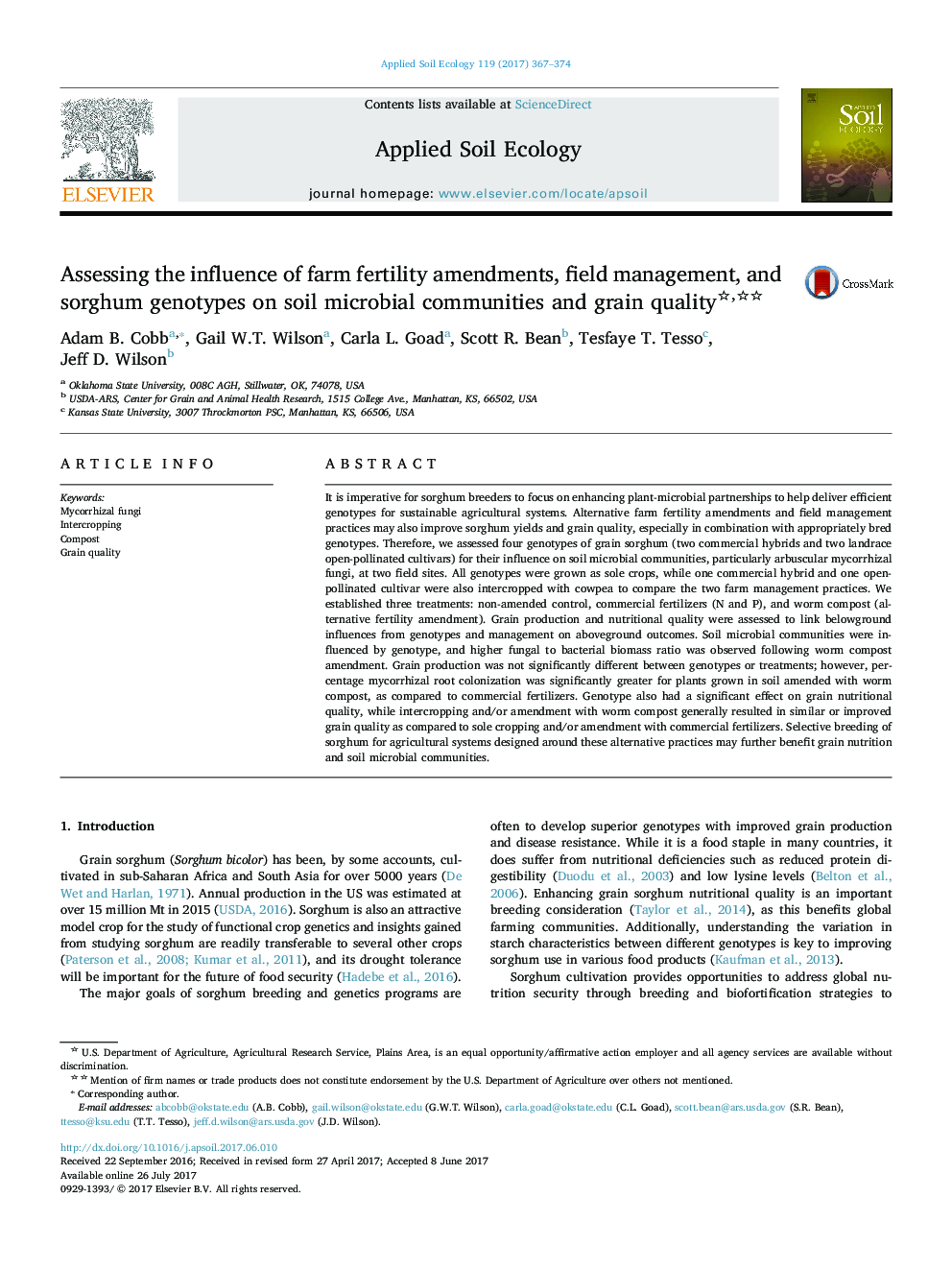| کد مقاله | کد نشریه | سال انتشار | مقاله انگلیسی | نسخه تمام متن |
|---|---|---|---|---|
| 5742642 | 1617765 | 2017 | 8 صفحه PDF | دانلود رایگان |
- Comparing sorghum genotypes for influence on soil microbes including mycorrhizas.
- Commercial fertilizers were contrasted with compost; sole crops with intercrops.
- Sorghum genotype significantly influenced soil microbes and grain quality.
- Yields were generally similar regardless of fertility treatment or farming method.
- Utilization of open pollinated cultivars may improve sorghum breeding.
It is imperative for sorghum breeders to focus on enhancing plant-microbial partnerships to help deliver efficient genotypes for sustainable agricultural systems. Alternative farm fertility amendments and field management practices may also improve sorghum yields and grain quality, especially in combination with appropriately bred genotypes. Therefore, we assessed four genotypes of grain sorghum (two commercial hybrids and two landrace open-pollinated cultivars) for their influence on soil microbial communities, particularly arbuscular mycorrhizal fungi, at two field sites. All genotypes were grown as sole crops, while one commercial hybrid and one open-pollinated cultivar were also intercropped with cowpea to compare the two farm management practices. We established three treatments: non-amended control, commercial fertilizers (N and P), and worm compost (alternative fertility amendment). Grain production and nutritional quality were assessed to link belowground influences from genotypes and management on aboveground outcomes. Soil microbial communities were influenced by genotype, and higher fungal to bacterial biomass ratio was observed following worm compost amendment. Grain production was not significantly different between genotypes or treatments; however, percentage mycorrhizal root colonization was significantly greater for plants grown in soil amended with worm compost, as compared to commercial fertilizers. Genotype also had a significant effect on grain nutritional quality, while intercropping and/or amendment with worm compost generally resulted in similar or improved grain quality as compared to sole cropping and/or amendment with commercial fertilizers. Selective breeding of sorghum for agricultural systems designed around these alternative practices may further benefit grain nutrition and soil microbial communities.
Journal: Applied Soil Ecology - Volume 119, October 2017, Pages 367-374
